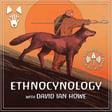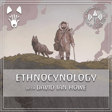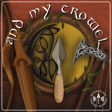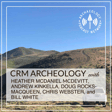
Dogs in Ancient Greece with Dr. Alyce Cannon (Part 1) - Ep 005
In this episode of ethnocynology David sits down with recently minted PhD, Dr Alyce Cannon.
David and Elise have known each other for the past 5 years through their work talking about dogs on social media. Alyce is a Sydney Australia based classicist and archaeologist who did her research on the ancient world and human animal interactions in ancient Greece specifically.
David and Alyce begin by catching up on life and David congratulates her on recently achieving her status as a phd. They then catch up about the state of the world and American versus Australian culture.
The meat of the episode then begins where Elise starts talking about her dissertation (or thesis) regarding human and animal interactions in ancient Greece and how dogs appear in pottery, zooarchaeology, and in oral tradition. and specifically, the oral tradition is quite interesting as a lot of stories refer to dogs derogatorily, and how that changes to a more positive light over time.
They then end the episode on the subject of a future episode where dogs in Warfare and their roles in everyday life can be discussed.
Https://ww.instagram.com/historydoggos/
Transcripts
- For rough transcripts of this episode go to https://www.archpodnet.com/ethnocynology/05
Links:
ArchPodNet
- APN Website: https://www.archpodnet.com
- APN on Facebook: https://www.facebook.com/archpodnet
- APN on Twitter: https://www.twitter.com/archpodnet
- APN on Instagram: https://www.instagram.com/archpodnet
- Tee Public Store: https://www.teepublic.com/stores/archaeology-podcast-network?ref_id=5724






